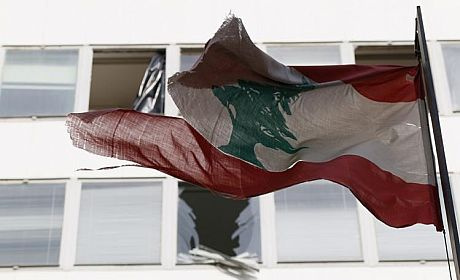Explosions, an Introduction to War

There have been speculations about the terrorist explosions in Lebanon including the point that the March 14th coalition considers Hezbollah as being responsible for these explosions; some others point the finger at the Abdullah Azzam Brigades. Meanwhile, Hezbollah considers Israel and Saudi Arabia responsible for these attacks. Some also state that Iran was the main target of these operations and the killing of any individual was accidental. To what extent are these speculations in accordance with reality?
These issues cannot be analyzed in an absolute manner. But what is certain is that the conditions in Lebanon are not desirable and are affected by the Syrian crisis; this country is faced with a security threat and domestic problems. One of the explosions in Lebanon occurred in the southern part and the other in front of the Iranian Embassy, both of which are under the influence of the Shiites but the recent explosion took place in the heart of Beirut and in the Sunni area. I have no information about who has enforced this operation and there have been speculations but the most important issue in these explosions is the threat of religious and sectarian differences in Lebanon. Signs of revenge could be seen in these two explosions which occurred in two Shiite and Sunni areas. Of course, some groups have claimed responsibility for the first two explosions and stated that they were aimed against Hezbollah and Iran which have interfered in Syria and support the army and government of this country. But no one has claimed responsibility for the latest explosion and that makes matters more complicated. The point that the government of Syria and Hezbollah are accused of carrying out these explosions is related to the present conditions in Lebanon. Of course Hezbollah has condemned these attacks. At the same time, such terrorist operations are not among the methods used by Hezbollah. What is certain is that none of the groups and political movements in Lebanon benefit from these explosions and it is only Israel which benefits from them.
It is said that the recent explosions, particularly the latest one, were aimed at exerting pressure on Iran to force Hezbollah to leave Syria. Could this be a leverage of pressure?
The explosions which happened against the Iranian Embassy and the areas under the control of Hezbollah and the Shiites are indicative of such objectives and they have stated their aim as well. But it seems that the people or groups which have launched these attacks, especially the last one which led to the death of one of the members of the March 14th coalition, is aimed at enflaming the religious and sectarian differences more than being an act of revenge, thus, it is doubtful. This operation creates more threats for the present conditions.
Mohammad Shatah, who was killed in the recent Beirut explosion, was the Minister of Finance during Saad Hariri’s tenure as prime minister and one of the prominent personalities of the March 14th coalition. Will his death damage Hariri and the March 14th Coalition?
This incident has increased religious sensitivities and differences and conflicts and has had undesirable effects on the unity of Muslims which will make the situation more complicated than before.
Are these explosions aimed at sending a message to Saad Hariri?
In Syria, Hezbollah and Iran support the government on one hand, and, on the other, the Sunnis and Lebanon have never denied their support of the Syrian opposition. Based on a general analysis, these incidents could refer to the issue that the differences, whether political or religious, have a message for all of the heads of the parties and the governments involved. It could also have a dangerous message for the Sunni and Shiite leaders because the conditions are worsening.
Some believe that Syria is behind the recent incidents, seeking to spread the crisis to Lebanon and to impact the Geneva-2 conference and force the groups and governments which oppose Assad to accept the present government. Would you agree with such an assessment?
Violence and terror can be the result of a lack of understanding, lack of reconciliation and rejecting the opposing parties and it might lead to the disruption or weakening of efforts towards peace. From another angle, these conflicts are the consequences of disunity among the Islamic community and certainly these events in Lebanon could be influenced by the incidents in Syria. I believe that so long as the issues in Syria do not reach a stable point, there will be no possibility of resolving the problems in Syria but if the people of Lebanon, particularly the influential religious groups, remain prudent, they could prevent the impacts of the Syrian crisis on the developments in Lebanon and prevent a civil war.
Considering the recent events, how would you see the future of Lebanon? What will the reactions of groups such as the March 14th coalition and Hezbollah be?
Based on my experiences in Lebanon, I must say that the people of this country and the political and ethnic groups have experienced the bitter taste of 15 years of civil war, thus, they have learnt serious lessons from it. They know that civil war will destroy the country; as it has happened in Syria where neither the government nor the opposition is able to establish peace and security, particularly the government which is responsible for this task. The issue of Syria has become so complicated that it has become a regional and even international crisis. Nevertheless, if the people of Lebanon show their willingness, they could control the speed and scope of the differences and conflicts. The Lebanese are aware of the fact that they should not enter a civil war. The conditions which have been created today threaten Lebanon in this way.

